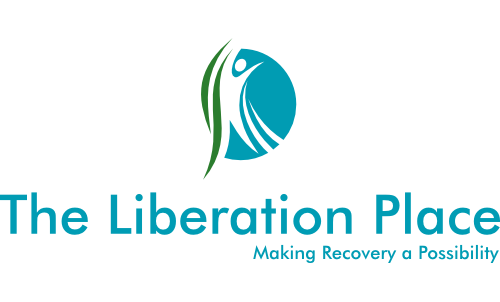Effective & Adaptive Schema
Striving to Live the Life you Want to Live revolves around creating a life that you no longer have a driving desire to escape from. In the early part of this journey, we are primarily focussed on producing the type of Recovery Lifestyle that is grounded in the fundamental principles of behaviour change that are designed to promote a solid foundation from which we can build. As we progress along the way, we are regularly confronted by the stories we’ve picked throughout the passage of time. Stories that create the filters from which we see the world, which in turn, push the parts of our personality to act out in ways that are designed to protect us from those negative emotional experiences we perceive to be on the horizon.
It goes without saying then that the vast majority of the work we do in the early stages of behaviour modification is focussed on the stories that are connected to our unmet childhood needs and the maladaptive schema that impact us in such a negative way. We spend the majority of time getting to know our own unique personality system, building awareness for the many different parts that are doing the only thing they know to do in order to protect the Vulnerable Child we tend to keep hidden away in the shadows. The ultimate goal for all of this work is to release the burden of story being carried in our system and cast of the metaphorical shackles that have held us captive for most of our adult life. We do this by educating the emotional child parts of our personality that are trapped in past experiences, new ways to see the world, and different ways to cope. Mindfully connecting with them to let them know that we are no longer living in those times, effectively teaching them that was then, and this is now.
Our personality system contains many Healthy Adult parts, all of which serve an important purpose in our lives. When in full flow, our Healthy Adult parts know what to do, can see right from wrong, and Live the Life we Want to Live by staying true to our values and beliefs. There are many people, myself included, who struggle to see the way in which our Healthy Adult can change the stories that are active in our system, so, what exactly does a Healthy Adult look like? Yes, as a Healthy Adult, we can discuss setting boundaries with people, living according to our values and beliefs, following the fundamental principles of building a recovery lifestyle, and practicing good self care, but what are the stories that we need to promote in order to increase the probability of change? How do we counteract the internal critic who is regurgitating schema from the past, pushing a self-defeating narrative on an emotionally immature personality system?
"When in full flow, our Healthy Adult parts know what to do, can see right from wrong, and Live the Life we Want to Live by staying true to our values and beliefs."
~Steven Morris RP.
Much like changing any habitual patterns, if you have an expectation that simply telling your parts to stop doing something will provide the success you are looking for, you will be sadly disappointed over time. Yes, this may work for short and unsustainable periods, but if we want to create behaviour patterns that have more longevity, we have to provide our system with something different to fill the void that is left by the behaviours we have stopped using. This is no different when we want to change a story that we have held on to for a significant period of time, regardless of whether this story is helpful to us or not. The schema is a life trap, it is a habitual way of seeing things that, up until now, we were probably completely unaware of. So, in order to remove this dominant story of negativity, we have to provide the new positive narrative that is needed to teach our frightened, sad, and lonely parts that what they feel to be true in this present moment, is in fact just a re-enactment of the past.
These “Positive Emotional Schemas” are used to understand, promote, and facilitate the activation of your Healthy Adult stories. This list was developed by Louis, Wood, Lockwood, Ho & Ferguson in 2018, whose research team used the original version of the Young Schema Questionnaire (Short Version) and effectively rewrote the questions in the opposite way to counteract the “maladaptive” items endorsed by the list of Negative Emotional Schema that get activated in our system. Up until this point, these negative emotional schema have been responsible for providing the framework for the stories we have focussed on througout the recovery journey. The following is a list of the new Positive Emotional Schemas we want to promote in our system to support the Healthy Adult we are trying to create, or reactivate.
Emotional Fulfilment
When this Schema is active in your system, you have the general belief that you have people in your life who meet your emotional needs of attachment, connection, and safety in a healthy way. When emotional fulfilment is in full swing and you’re in a Healthy Adult mode, your personality system feels content because you know that there are people in your life that you feel emotionally connected to. You are living your life to be in line with your values and beliefs, reducing the previously ever-present experience of guilt and shame, and you are experiencing the balance and harmony associated with this healthy way of seeing the world.
Success
When this Schema is active in your system, you have the general belief that you are a capable and competent person in life, whether this is at home, in the community, at work or in school, you feel confident in the success of the tasks you’re taking on. You are aware that there will be actions that you take in future endeavors that will fail at certain points in time, but you do not attach this failure to your own sense of self worth, as you believe that it is the action that has failed and not you as a person who is a failure, and you are able to practice humility when it comes to who you are, and what you do.
Empathic Consideration
When this Schema is active in your system, you have the ability to accept the differing opinions of other people, even when they are radically different to your own. Your empathy for others is built on curiosity, without projection of your own stories, or the need for your own point of view to be right by overemphasising the need for validation. When your healthy adult modes are working from this schema, your empathy for others is not a burden, it helps you connect with real meaning and intimacy.
Optimism
When this Schema is active in your system, you have the belief that things will generally turn out for the best. You are aware that sometimes things work out, and sometimes they don’t, but generally things will be ok if you do the right thing to keep you in line with your values. Your Healthy Adult parts understand the basics of the “Just World Myth” and recognize that the things that happen to you are not a reflection of who you are at your core.
Emotional Openness
When this Schema is active in your system, you have the ability to express your feelings in front of others, without fear of rejection or abandonment. When your Healthy Adult is reacting to this the presence of this schema, you understand the need for boundaries and are able to crate a healthy attachment inside of your relationship, without being fearful or avoidant of the possible outcomes involved in making a connection.
Self-Compassion
When this Schema is active in your system, you have the ability to treat yourself with kindness and forgiveness. Your Healthy Adult is able to bear witness to what you have said and done in the past or in the present, without any judgement, and you are able to practice the skills of Unconditional Self Acceptance with every part of your own unique personality system.
Developed Self
When this Schema is active in your system, you have the belief that you can function in everyday life independently from your parents, and there is no need for dependence on others to get things done. You are able to live an autonomous life that gives you purpose and meaning, making choices that line up with your values, and taking actions to reach the goals you have set for yourself.
Social Belonging
When this Schema is active in your system, you have the feeling of belonging and acceptance within groups, social circumstance, in the community, at work, school, or at home. Your Healthy Adult parts are confident in your ability to recognize the people who you want to connect with and set boundaries with those that have possible “red flags.” When in social circumstances, your system is calm and content, and you are comfortable conversing in a wide variety of ways, with a wide variety of people, on a wide variety of topics, regardless of knowledge or understanding.
Healthy Self-Control
When this Schema is active in your system, you have the ability to maintain routines and persist on difficult goals. Your life is built around a schedule that is flexible and fluid to change and adaptable without causing a sense of inner conflict. Your Healthy Adult modes are comfortable with problem solving when difficulties occur, and you are able to cope with change in structure by maintaining your accountability in a healthy way.
Realistic Expectations
When this Schema is active in your system, you have the willingness to set achievable goals and accept yourself and your achievements as 'good enough'. You hold your standards at your core and strive to achieve them as often as you can, while at the same time, being aware that your inability to reach these standards is not a direct reflection of who you are as a person at your core. Your expectations on others are based on their own abilities, and not what you think they should be achieving, and you are able to recognize you.
Self-Directedness
When this Schema is active in your system, you have the belief that your own opinion of the Self is the most important. You have faith in your system and its ability to Self regulate, and you filled with compassion and curiosity for the world, both internal, and external. Your system is led by Self-energy and your Healthy Adult parts are using this energy as a state of wise mind to make decisions that line up with your values and beliefs.
Healthy Self-Interest
When this Schema is active in your system, you have the willingness to set aside time to practice self-care and prioritise your own needs in a healthy and balanced way. Your Healthy Adult parts are accessing the necessary skills to recognize the balance between helping others and taking care of yourself, and you are making decisions about these things from a wise mind perspective, with curiosity and compassion for every aspect of the choices you are making.
Stable Attachment
When this Schema is active in your system, you have the belief that your relationships are stable and enduring. Your Healthy Adult parts are dominant in your system, and you feel connected to yourself in others, regardless of the presence of these people being around you, or not. Your relationships are important to you, and yet there is a sense of ease that they are never in jeopardy of any kind.
Competence
When this Schema is active in your system, you have the belief that one is capable of managing daily tasks and problems. Your Healthy Adult parts take charge of system and direct your behaviours accordingly. You are able to recognize what you can and cannot do, take direction and constructive criticism when needed, and offer suggestions when called upon to do so. There is a sense of ease around your knowledge, and ability to learn when needed, and you are comfortable working in a team, or alone.
For me, once we are aware of the dominant stories in our system, and we are searching for ways to meet the unmet needs associated with their creation, this list of Positive Schemas is the foundation required to heel the burdens that keep us stuck in our re-enactments of the past. This list gives us a framework to work towards change. As we know, if you didn't grow up in an environment that was able to meet your unmet needs, then you may struggle to engage with many of these Positive Schemas. The good news is that becoming a “Healthy Adult” is like learning a new language, even though it takes time and effort, it is never too late to learn.

Download Positive Schema PDF
Follow us on Social Media





